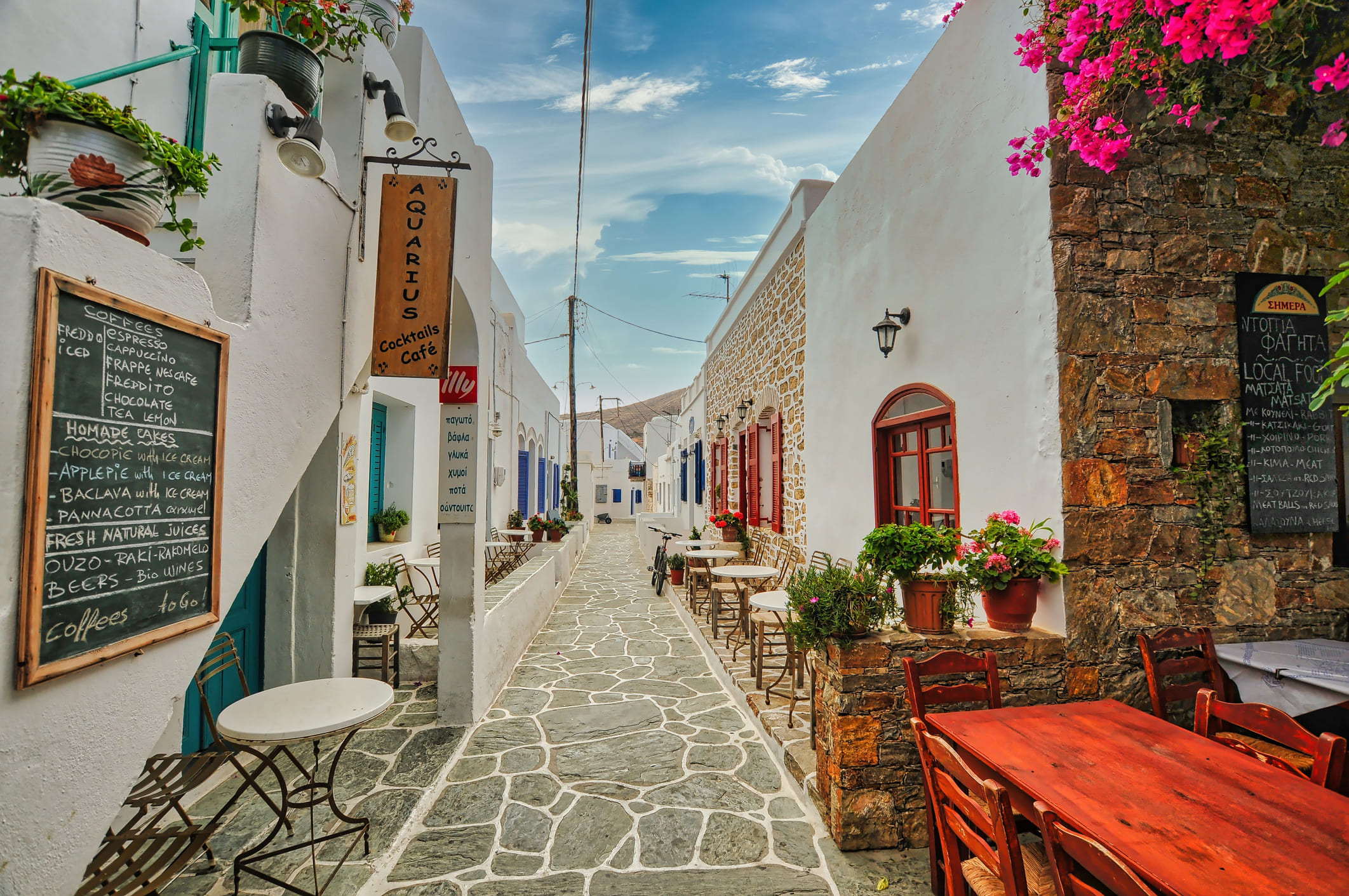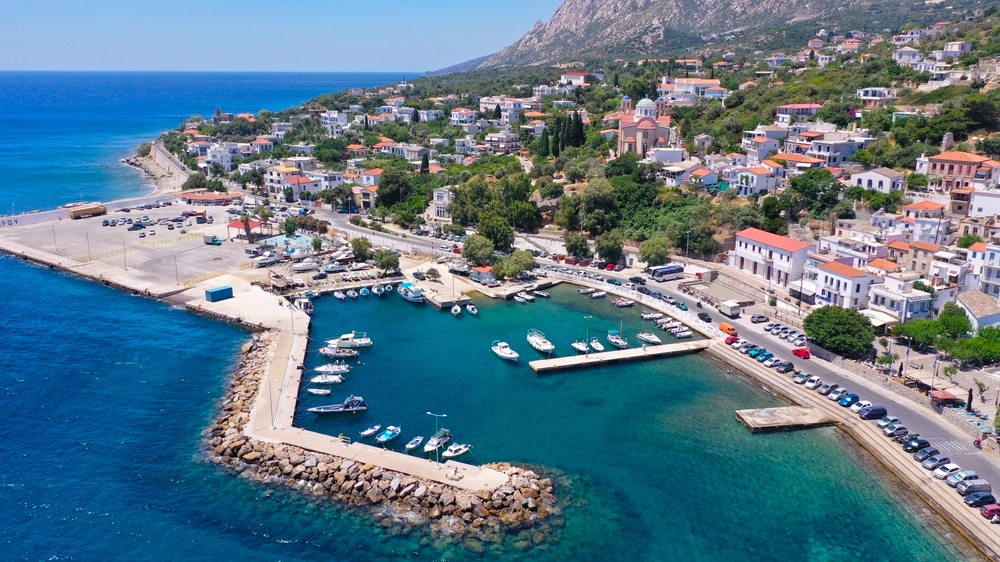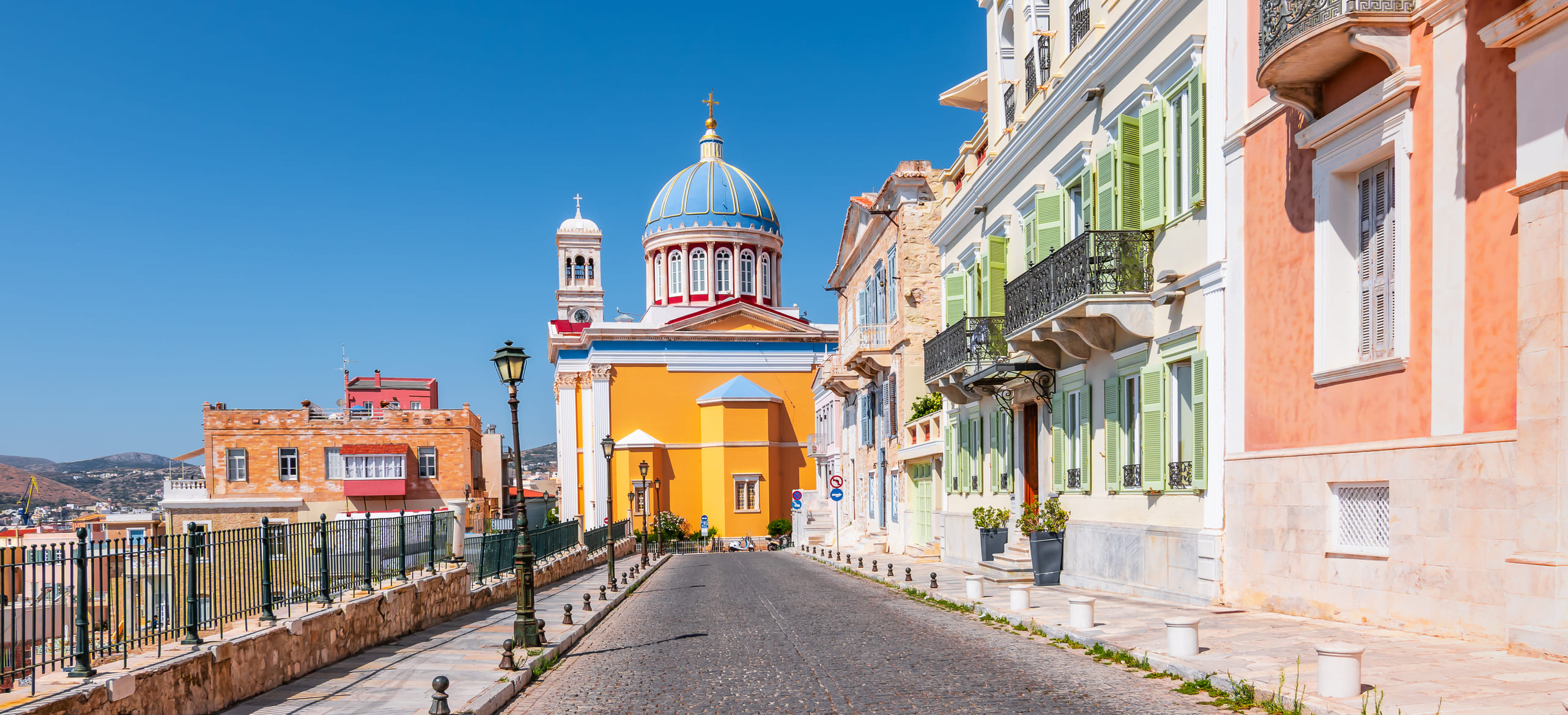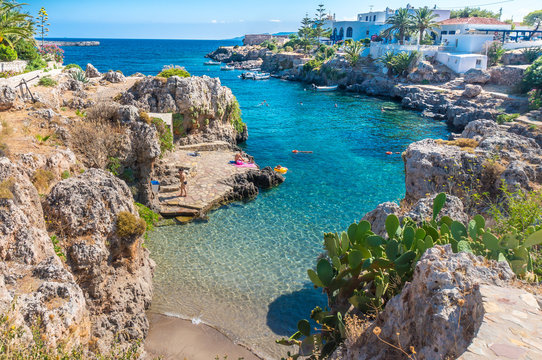Kodratou 14, Athens
210 5248005
By Nelly Paraskevopoulou
Do you have a recommendation or recipe to share? Send it to us at ideas@xpatathens.com!
Omilo Greek Language and Culture inspires people from all over the world to learn Greek, while exploring Greece. They offer 1- and 2-week courses for adults that combine beautiful course locations, experienced teachers, and a balanced combination of Greek classes with cultural activities. All these make Omilo a place where people enjoy learning modern Greek and have fun.
Besides the courses, Omilo also creates online publications to help adults expand their language skills through Language Books and eBooks for different language levels.
To learn more about the organization click HERE!

2. Authentic Local Culture
📌 Agios Kirikos, Ikaria
Less touristy islands often retain more of their traditional culture and customs, providing a more genuine and immersive experience. You’ll find local festivals, traditional cuisine, and friendly residents eager to share their way of life.
Recommended Islands

Recommended Islands

5. Unique Experiences
📌 Avlemonas Beach, Kithira
Visiting a less touristy island provides the opportunity for unique experiences that you won’t find in more crowded destinations. From secluded coves and hidden archaeological sites to local festivals and traditional fishing villages, there’s always something new to discover.
Recommended Islands
After living in Marousi all this time, I decided to take a look at what’s out there in different neighbourhoods. So with a few appointments scheduled, and with 2 friends in tow, I spent most of the weekend going from apartment to apartment (yes, some Athenian realtors work Sundays!). We looked nearby (Marousi, Kifissia) but also looked in the city centre (Thissio, Psirri), which, incidentally, have some great ‘lofty’ spaces.
Of course, the triple set of ‘apartment essentials’ is location, price and style – and we all know it’s normally impossible to find all three together. This weekend was no different. One nice place in a bad location. Another great location out of my real price range. Another perfectly placed and affordable spot, but not really my taste.
So the search continues. And sometimes I think that going through the motions of looking for a new place to live serves the greater purpose of reminding you how much you love going home every day to the place you already have.
Looking forward to a fun night at Molly Malone’s on Saturday!
Until next week,
Jack
In this weekly space, keep up with ‘Jack’ as he navigates daily life in Athens… Anecdotes, stories, hits & misses, the good, the bad and, well, the rest…
As we all know it all started here...in Greece... Did you know that the first burger was served in Athens back in 1886? That was the city called "Athens", in Texas, USA... Fletcher Davis, a native of Athens, Texas, was the one who invented the hamburger and served it for the first time to his customers. It is now our turn here in our Athens of 2013 to serve this world-wide popular meal using the famous recipe.
For all of us, perfect-burger-lovers! Great value for money in an unpretentious, friendly space. Hearty portions, genuine, juicy taste, country fries, veggie burgers, and specialties like the Athens burger with feta sauce, make this burger place an excellent choice.
Kodratou 14, Athens
210 5248005
By Nelly Paraskevopoulou
Do you have a recommendation or recipe to share? Send it to us at ideas@xpatathens.com!
Necessity being the mother of invention, the financial crisis has birthed many new business ideas as people seek innovative sources of money in difficult times. The opening of Greece’s first tasseography coffee shop is one such inspiration.
Tasseography is a fortune-telling method that interprets the residues at the bottom of a cup of coffee or tea, and is a very popular tradition in Greece and the Middle East, dating back to the 16th century. Some people who believe that shapes created by coffee grinds or tea leaves in the bottom of the cup can help predict the future, and with people willing to spend money on anything that might solve their problems, the coffee-reading business is flourishing in countries like Greece and Turkey.
Until recently, tasseography was mainly practiced by “amateurs” in house gatherings for fun, but now Greek journalist Mairi Kontolouri has decided to open a coffee reading business in a suburb of Athens, where customers can “legally and without any concerns learn about their future.”
“I opened ‘Flitzani’ (Greek for cup) as a hangout place for coffee, drinks and fortune-telling, which is practiced here by professional fortune-tellers. I think that I revived the idea of the old female group going out for gossip, although many men also visit the place,” said the journalist in an interview.
“Our schedule is always fully booked and people even organize day trips to the countryside to get the chance to learn about their future. I believe that tasseography is some kind of spa, cheering people up and driving away misery. All our customers are very satisfied from the fortune-tellers and their interpretations,” added Kontolouri.
By Konstantinos Menzel
Greek Reporter
I am a wine drinker. My favorite earthly activity is eating in a taverna with my friends and drinking wine, especially Greek wine, whether it is from the bottle, barrel or the box. Some of my favorite tavernas have their own wine, straight out of the barrels, which are usually stacked against the wall.
We order it by the kilo and we can go through several kilos in an evening. Glasses are continually being refilled by each other without anything being said. It's like a reflex or second nature to fill your neighbors glass when you see it is empty. And when the carafe is empty someone at the table just lifts it in the air and catches the eye of a waiter, the busboy or even the owner of the restaurant and in thirty seconds it is full again.
Retsina is my preferred wine and once in awhile if you are lucky, that is what is available in those barrels. But many tavernas these days have turned away from retsina and are making excellent wines, often as good or better than any well known commercial bottled brands, though you can find yourself in a taverna where the barreled wine is awful. Most restaurants are proud of their wine though not all the restaurants make their own. Some buy it from distillers by the barrel or by large jug, and in some touristy restaurants homemade wine, or hima, as it is called, is not even available and you have to take your chances with the wine list.
Lately many restaurants have been buying bulk wine in boxes and filling the carafes from them. But before you get upset I want to reassure you that many of these boxed wines are pretty good and in some cases it is the same bulk wine the restaurants have always had, but now it comes in boxes. But walking into a restaurant and seeing barrels stacked is usually a sign that they make their own wine and you should try that first before you try any bottled wine they may have. But my rule is to always ask for local wine (doh-pio) and then ask for hee-ma or wine in a carafe (karafaki) and hope for the best. It is rare that I will get a house wine so bad that I send it back and order a bottle from the wine list, but it does happen. I always ask if it's good (eeneh kalo?) and they always say absolutely (veh-vay-os). But what else are they gonna say? It's terrible? There are also many farmers on the islands who are bottling their own wine and you can often find them in tavernas and in the various traditional shops, supermarkets and even in the bakery.
To read the rest of this post, please visit Matt Barrett's greecefoods.com